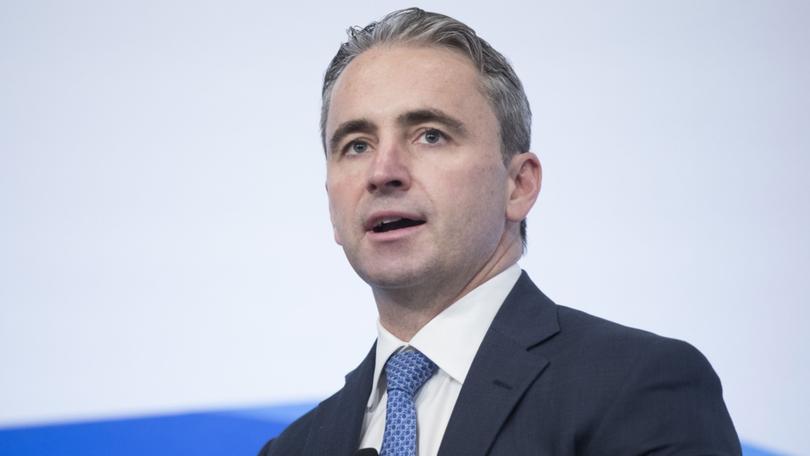Commonwealth Bank CEO Matt Comyn cautions on risks to economy as profit slides

Commonwealth Bank of Australia chief executive Matt Comyn said risks are mounting in the economy after profit at the country’s largest lender topped expectations even as it continues to battle strong competition in the mortgage market.
Cash profit from continuing operations came in at $5.02 billion in the six months ended December 31 - down 3 per cent on the prior corresponding period — the bank said in a statement Wednesday. That beat the average estimate of $4.92b in a Bloomberg survey of analysts.
With margins under pressure from the fiercely contested market for home loans, investors are scrutinising the bank’s 20 per cent share price surge since the start of November and are weighing whether expectations have run too far ahead.
Sign up to The Nightly's newsletters.
Get the first look at the digital newspaper, curated daily stories and breaking headlines delivered to your inbox.
By continuing you agree to our Terms and Privacy Policy.Mr Comyn, who has been prepared to lose a little market share in mortgages to keep rates elevated, is grappling with softer inflation in Australia and as traders bet that benchmark interest rates will start to come down later this year.
“The economy has been fairly resilient, supported by a strong labour market, savings and repayment buffers, population growth and relatively high commodity prices,” Mr Comyn said in the statement.
“However, downside risks are building as slowing demand and persistent inflation impact Australian businesses. Ongoing geopolitical tensions also create uncertainty.”
CBA will pay an interim dividend of $2.15 per share, topping the estimate for $2.11, and said it will continue to target a full-year payout ratio of 70 to 80 per cent in its cash profit.
Consumer arrears increased in recent months, but remain historically low, reflecting ongoing pressures from higher interest rates and the elevated cost of living, according to the statement.
Mr Comyn also said his firm expects “financial strain to continue in 2024, with an uptick in our arrears and impairments. We remain well provisioned and capitalised, with capacity to navigate an uncertain economic environment.”
Bloomberg
